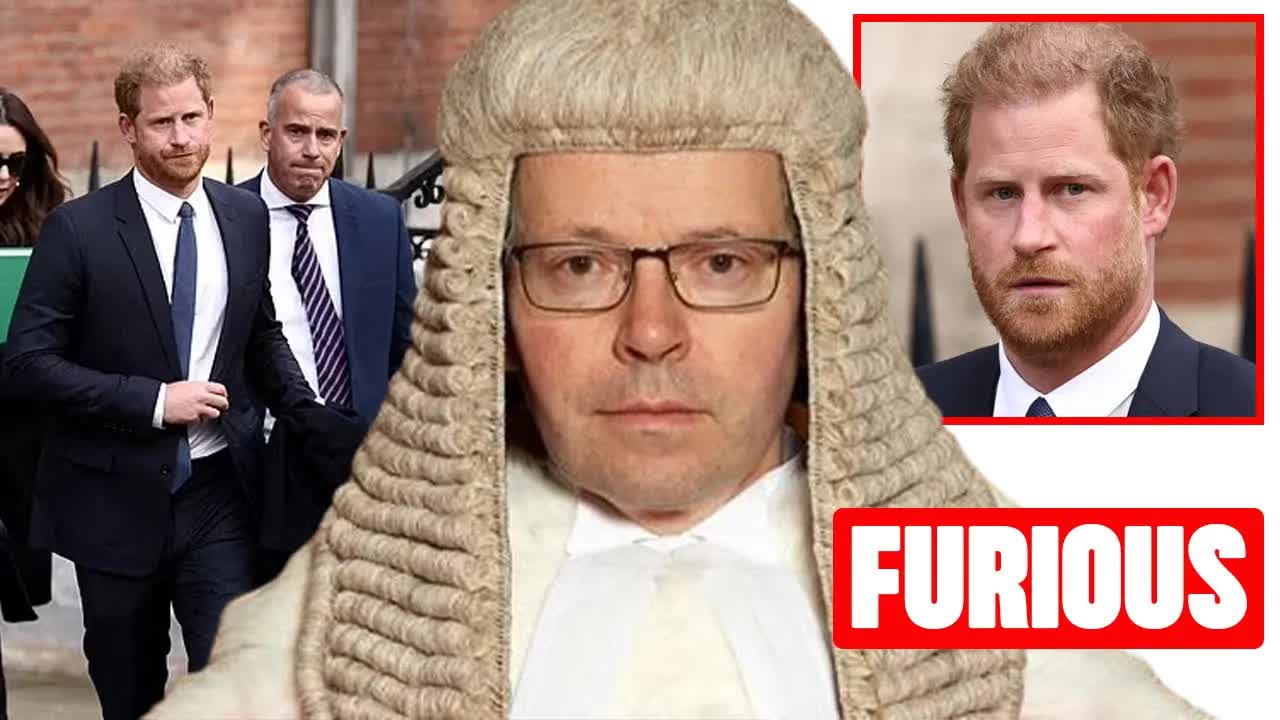In a recent courtroom drama, Prince Harry faced a significant setback as a High Court judge dismissed his allegations regarding supposed bugging and tracking devices allegedly planted by The Sun.
Mr. Justice Fancourt, clearly unimpressed with the evidence—or lack thereof—pointed out that Harry failed to provide any specific details to support his long-standing accusations against the publication.
This ruling adds another layer to the ongoing legal saga involving the Duke of Sussex and around 40 other claimants who are embroiled in a battle against the tabloid giant.
You might wonder what Harry was thinking when he embarked on this legal journey.
After all, a solid case typically requires credible evidence, right?
Yet, Harry’s recent claims read more like a script from a poorly written drama than a serious legal argument.
His latest submission was filled with vague assertions that would make even a novice investigator roll their eyes in disbelief.
In a preliminary ruling, Justice Fancourt denied Harry the opportunity to include certain allegations in his case.
Notably, he had to withdraw claims about his former girlfriend Chelsea Davies’ car supposedly being bugged.
It seems that Harry may have realized that his legal strategy was more soap opera than courtroom drama, prompting him to retreat from this particular claim.
The judge didn’t hold back in his assessment, emphasizing the absence of specific details regarding the alleged bugging.
“No particulars are provided about bugging,” he stated, highlighting the weak foundation of Harry’s claims.
Even more entertaining was the judge’s outright rejection of Harry’s attempts to incorporate terms related to listening and tracking devices, pointing out that there was no substantial evidence backing these dramatic assertions.
One can only picture the scene: Harry, clutching his legal documents, passionately proclaiming his innocence while the judge shakes his head in disbelief.
This isn’t the first time Harry’s legal aspirations have stumbled, either.
Last year, Justice Fancourt dismissed his phone hacking claims, stating that the prince had waited far too long to take action.
Harry argued that a supposed secret agreement with Buckingham Palace had prevented him from coming forward sooner—a claim the judge found implausible.
It seems that Harry may be living in a fantasy world where royal status exempts him from the rules that apply to everyone else.
Justice Fancourt even likened Harry’s ongoing legal battles to a drawn-out campaign between two stubborn armies, painting a humorous picture of the prince marching into court with a cardboard crown and a battalion of eager lawyers ready to fight imaginary foes.
Despite the setbacks, the judge did allow Harry’s legal team to make some amendments to their case presentation while also upholding certain objections from The Sun.
He made it clear that the trial set for January must either proceed or be settled outside of court, pushing Harry to conclude this exhausting saga.
The most ironic aspect of this entire situation is Harry’s persistent portrayal of himself as the victim.
One could argue that his incessant complaints about privacy invasion are the very definition of hypocrisy.
After all, he has been anything but discreet about his own life, sharing intimate details that would make anyone question his claims of wanting privacy.
The royal family has been subjected to his revelations both during and after Queen Elizabeth II’s passing, yet here he stands in court, pointing fingers at others.
It’s hard not to feel a mix of sympathy and frustration for the prince, who appears to be caught in a whirlwind of his own making.
Harry, it might be time to reassess your perspective.
You’re not the center of the universe simply because of your royal lineage.
With the judge clearly fed up with the ongoing saga, he has made it abundantly clear: it’s time to stop wasting the court’s time and either prove your claims or move on.










